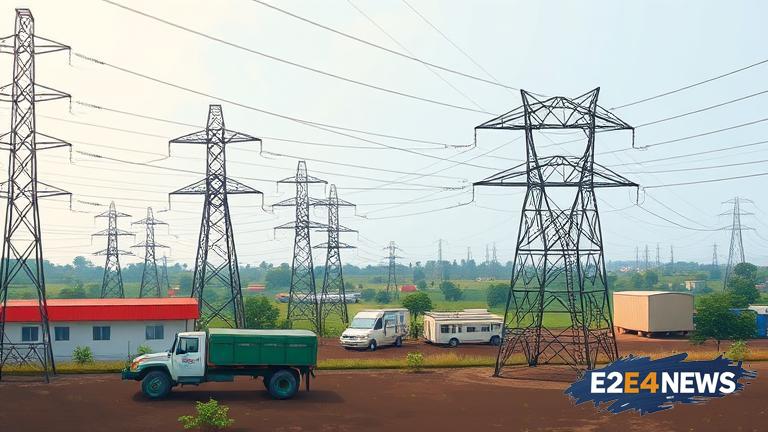The Nigerian energy sector has been plagued by inefficiencies and high costs, leading to a call for reform by experts in the field. Recently, a renowned expert in the energy sector has urged the Nigerian Electricity Regulatory Commission (NERC) to adopt a multiple tariffs model for states to improve efficiency and reduce costs. This model would allow for different tariffs to be applied in different states, taking into account the unique energy needs and consumption patterns of each region. The expert argued that the current one-size-fits-all approach to tariffs is not effective and has led to a lack of investment in the sector. By adopting a multiple tariffs model, NERC can create a more level playing field for investors and encourage the development of new energy projects. This, in turn, would lead to improved access to electricity for millions of Nigerians who currently lack reliable power supply. The expert also noted that the multiple tariffs model would allow for more accurate pricing of electricity, reflecting the true cost of generation, transmission, and distribution. This would help to reduce the financial burden on the government and enable the sector to become more self-sustaining. Furthermore, the expert emphasized the need for NERC to engage with stakeholders, including state governments, investors, and consumers, to ensure that the multiple tariffs model is designed to meet the needs of all parties involved. The expert also highlighted the importance of transparency and accountability in the implementation of the multiple tariffs model, to prevent abuse and ensure that the benefits of the model are shared fairly among all stakeholders. In addition, the expert noted that the multiple tariffs model would require significant investment in infrastructure, including the development of new transmission and distribution lines, as well as the upgrade of existing infrastructure. However, the expert argued that the long-term benefits of the model, including improved efficiency and reduced costs, would far outweigh the initial investment costs. The expert also emphasized the need for NERC to develop a comprehensive plan for the implementation of the multiple tariffs model, including a timeline for rollout and a strategy for managing the transition. This would help to minimize disruptions to the sector and ensure that the benefits of the model are realized as quickly as possible. Overall, the expert’s call for a multiple tariffs model for states is a timely and important contribution to the debate on how to reform Nigeria’s energy sector. By adopting this model, NERC can help to unlock the potential of the sector, improve access to electricity, and drive economic growth and development. The expert’s proposal has been welcomed by many stakeholders, who see it as a key step towards creating a more efficient and sustainable energy sector. However, others have raised concerns about the potential impact of the model on vulnerable consumers, who may struggle to pay higher tariffs. In response to these concerns, the expert has emphasized the need for NERC to implement measures to protect vulnerable consumers, such as subsidies or other forms of support. The expert has also noted that the multiple tariffs model would allow for more targeted support for vulnerable consumers, by enabling NERC to design tariffs that reflect the specific needs and circumstances of different consumer groups. In conclusion, the expert’s call for a multiple tariffs model for states is a significant development in the debate on how to reform Nigeria’s energy sector. By adopting this model, NERC can help to create a more efficient, sustainable, and equitable energy sector, which would have far-reaching benefits for the economy and society as a whole.
